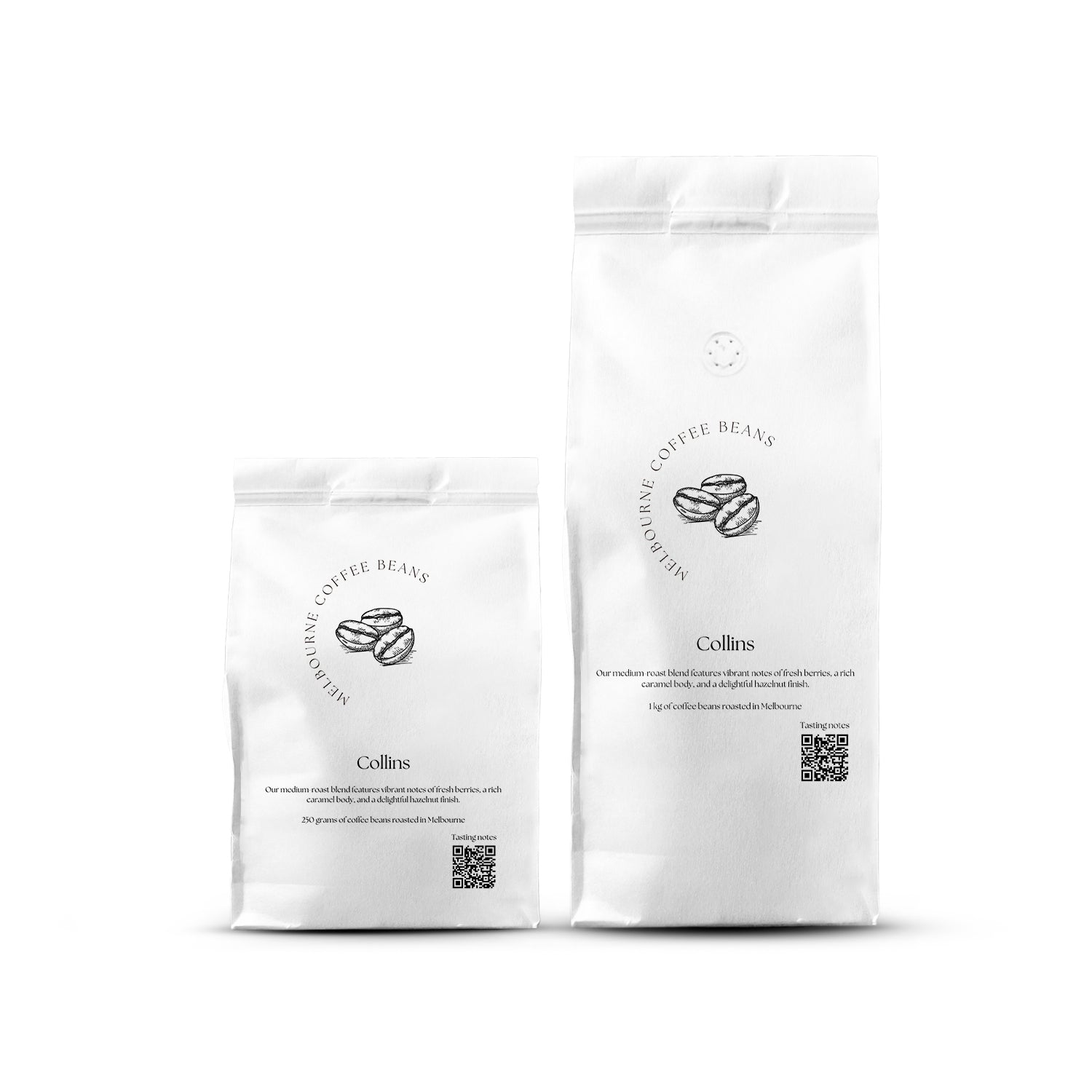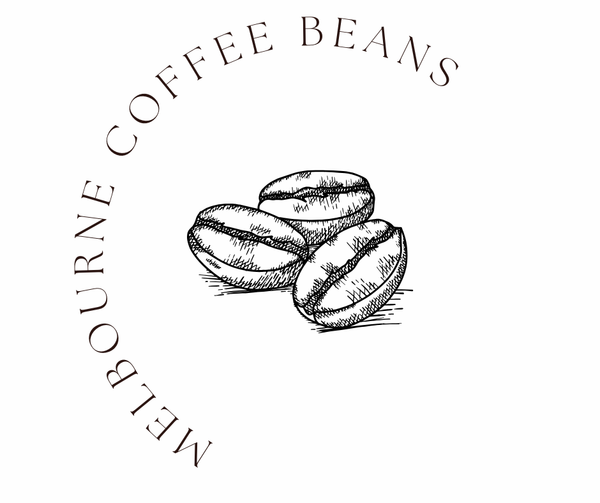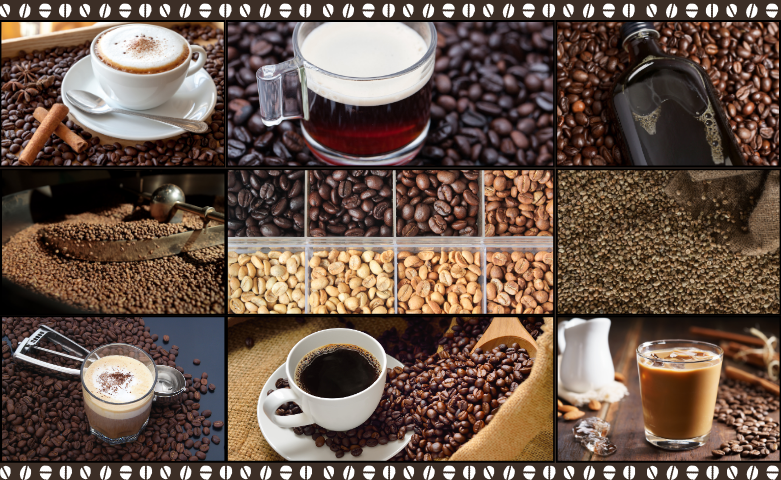In Australia, we take our coffee seriously. From the bustling cafes of Sydney to the hidden gems in Perth, our coffee culture is second to none—but what makes a truly great cup of coffee? It all starts with the best beans.
Today, we're diving into the crème de la crème of coffee beans for 2025. Whether you're a seasoned coffee enthusiast or just learning how to open a cafe, this guide explores the finest coffee beans that will make your morning brew a cut above the rest.
Key Takeaways
- Quality coffee beans are crucial for a delicious cup, with factors like origin, processing, and roast level playing key roles.
- The best coffee beans 2025 include a mix of classic favourites and emerging varieties from various regions worldwide.
- Proper storage and brewing methods are essential to unlock the full potential of premium coffee beans.
Criteria for Selecting the Best Coffee Beans
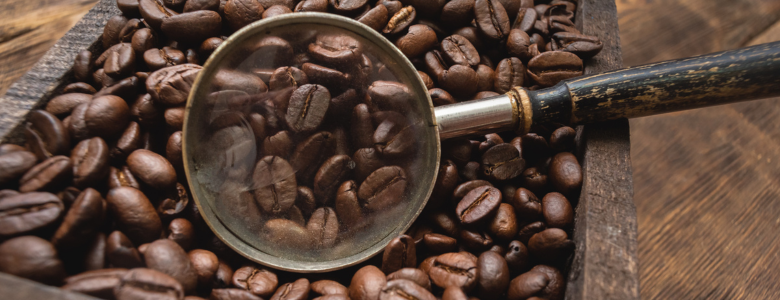
When choosing the best coffee beans, there's more to it than just picking a bag off the shelf. Here's what we look for:
- Origin: The region where the coffee is grown significantly influences its flavour profile. Each origin has unique characteristics due to soil, climate, and altitude.
- Coffee Bean Type: Different coffee plant varieties produce beans with distinct flavours. Arabica coffee beans are generally considered superior to Robusta, but there are exceptions.
- Processing method: How the coffee cherries are processed affects the final taste. Methods include washed, natural, and honey processing.
- Roast level: From light to dark roast coffee beans, the roasting process greatly impacts flavour. Medium roast often provides a balanced cup.
- Freshness: Freshly roasted beans are crucial for the best flavour. Look for roast dates on the coffee bag.
- Sustainability: Many coffee drinkers now prioritise organic coffee beans and ethically sourced options.
- Taste profile: Ultimately, the flavour notes and overall taste are what make a coffee bean stand out.
Brewing Methods and Coffee Flavour Profiles
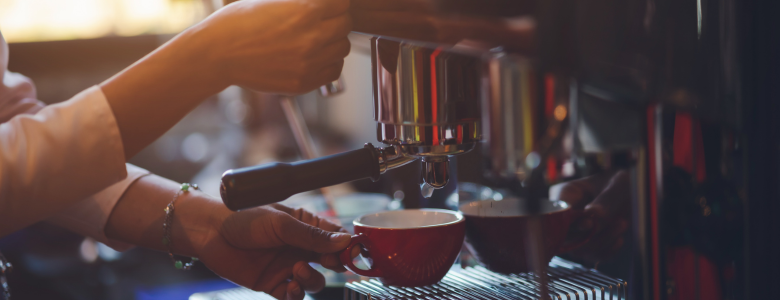
The brewing method you choose can significantly impact your coffee's flavour profile. Here's a quick overview:
- Drip Coffee: Great for bringing out the balanced flavours in medium roast coffees.
- Espresso: Ideal for dark roasts and robusta beans, highlighting their strong, intense flavours.
- Pour Over: Perfect for light to medium roasts, especially single-origin coffees with complex flavour profiles.
- French Press: Excellent for dark roasts, as it brings out their full body and rich flavours.
- Cold Brew: Works well with dark roasts and coffees with chocolate or nutty notes.
Specialty vs Commercial Coffee Beans
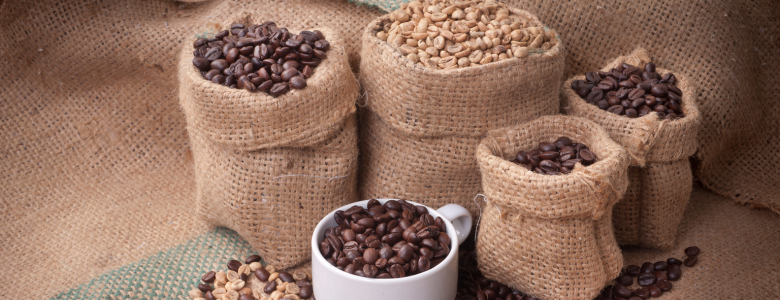
Before we dive into the best coffee beans, let's talk about the difference between commercial and specialty coffee beans. It's like comparing a meat pie from the servo to one from your local bakery - both are pies, but the quality and experience are worlds apart.
Commercial coffee beans are what you'll typically find in supermarkets. They're often a blend of Arabica and Robusta coffee beans, roasted in large batches, and designed for consistency and long shelf life. They'll do the job but might not blow you away.
Specialty coffee, on the other hand, is the good stuff. These are high-quality Arabica coffee beans, often single origin, that score 80 points or higher on a 100-point scale. They're carefully sourced, roasted in small batches, and offer complex flavour profiles that'll make your taste buds dance.
At Melbourne Coffee Beans, we're all about specialty coffee - it's what keeps our customers coming back for more.
Top Coffee Beans You Must Try
So, what are the best coffee beans? Here's a quick rundown of our top picks, categorised to help you find your perfect brew:
- Best Overall: Ethiopian Yirgacheffe
- Best for Espresso: Brazilian Santos
- Best Dark Roast: Sumatra Mandheling
- Best for Pour Over: Kenyan AA
- Best Balanced: Colombian Supremo
- Best Specialty Coffee: Panama Geisha
- Best Value: Honduran Marcala
- Best for Cold Brew: Papua New Guinea Highlands
- Best Decaf: Mexican Chiapas (decaf process)
- Best Organic: Peruvian Organic
- Best Sustainable/Fair Trade: Colombian ASOAPIA Fair Trade Coffee
1. Ethiopian Yirgacheffe - Best Overall
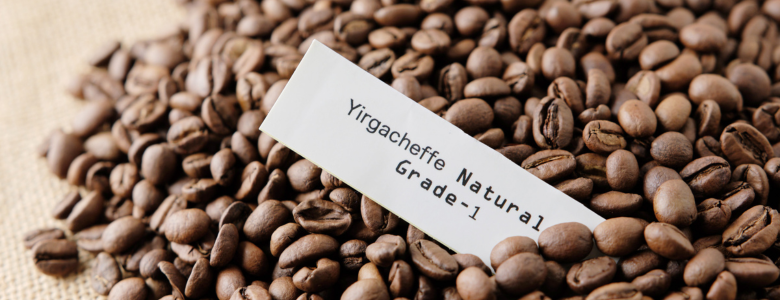
Hailing from the birthplace of coffee itself, Ethiopian Yirgacheffe is a true gem among Arabica coffees. These coffee beans are typically given a medium light roast to preserve their delicate flavours.
When you crack open a bag of freshly roasted Ethiopian Yirgacheffe, you're greeted with a heavenly aroma of jasmine and citrus. Brew it up in your drip coffee maker or as a pour-over coffee, and you'll discover a complex cup with bright acidity, floral notes, and hints of bergamot and lemon.
What makes Yirgacheffe so popular among coffee enthusiasts is its unique taste that's often described as "tea-like" due to its light body and floral qualities. It's a favourite for those looking to explore the diverse world of single-origin coffee.
Pros:
- Considered one of the best coffee beans.
- Delicate, complex flavours ideal for freshly roasted coffee.
- Medium roast preserves unique characteristics.
- Excellent for the pour-over brewing method.
Cons:
- Light body may not satisfy those preferring strong coffee.
- Might be too complex for those who prefer a simple, balanced coffee.
2. Colombian Supremo - Best Balanced Coffee
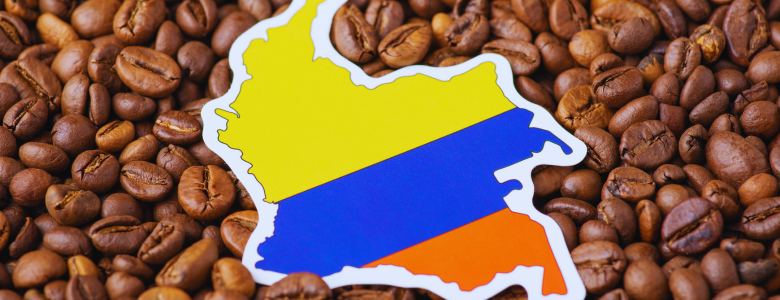
When it comes to a perfectly balanced cup of coffee, it's hard to beat Colombian Supremo. These Arabica beans are grown in the lush, mountainous regions of Colombia, where ideal growing conditions produce a consistently excellent bean.
Colombian Supremo offers a medium body with a smooth, clean taste. You'll notice hints of caramel and nuts, with a subtle sweet undertone reminiscent of brown sugar. The acidity is mild and pleasant, making it an incredibly easy-drinking coffee perfect for your daily brew.
This coffee's popularity stems from its reliability and balance. It's excellent as a daily brew in a drip coffee maker, providing a consistently smooth and approachable cup. Colombian Supremo also performs well in espresso blends, adding a sweet caramel note, and its nutty undertones complement milk-based drinks nicely.
Pros:
- Exemplifies balanced coffee.
- Versatile for various brewing methods.
- Medium roast brings out caramel and nut flavours.
- Great choice when buying coffee beans online.
Cons:
- May lack distinctive character for coffee enthusiasts.
- Not ideal for those seeking very bold or unique flavours.
3. Guatemalan Antigua - Best Medium Roast
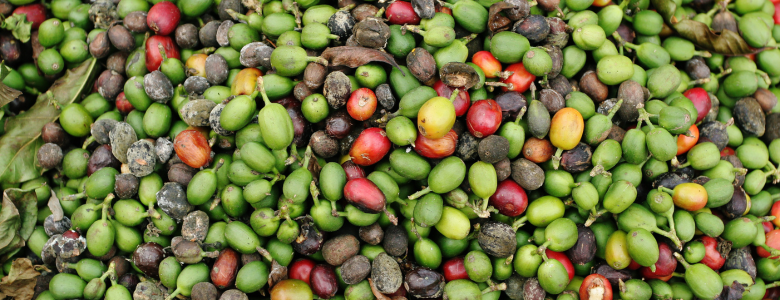
Alright, let's talk about a true crowd-pleaser - Guatemalan Antigua. These coffee beans are grown in the Antigua Valley, surrounded by volcanoes that enrich the soil with minerals, giving the coffee its distinctive flavour.
When you're brewing up a batch of Guatemalan Antigua, you're in for a treat. It's typically roasted to a medium level, which brings out its well-balanced flavour profile. You'll notice a smooth, full body with a lovely bright acidity that's not overpowering. Flavour-wise, expect notes of chocolate, nuts, and a subtle fruitiness - some even reckon they can taste a hint of spice.
What makes Guatemalan Antigua so popular is its unique taste influenced by volcanic soil and adaptability. As a drip coffee, it shines with its chocolate and subtle spice notes, while in espresso blends, it adds depth and a hint of fruitiness. Even in milk-based drinks, its distinctive character comes through, offering a more nuanced experience than many other coffees.
Pros:
- Excellent representation of medium-roasted coffees.
- Versatile for different brewing methods.
- Well-balanced flavour profile.
- Good option for a coffee roastery.
Cons:
- May not satisfy those seeking very light or dark roasts.
- Subtle flavours might be lost in milk-based drinks.
4. Kenyan AA - Best for Pour-Over Coffee
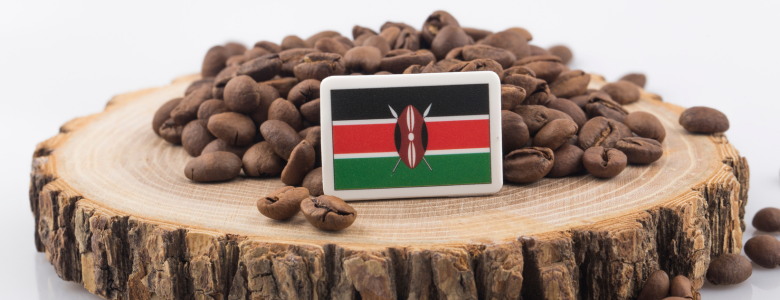
Kenyan AA beans are the crème de la crème of African coffees, and they're absolutely brilliant when brewed as a pour-over coffee. These high-grade Arabica beans are grown at high altitudes in Kenya's volcanic soils, resulting in a coffee with exceptional clarity and complexity.
When you brew Kenyan AA as a pour-over, you're in for a treat. The cup is bright and vibrant, with a wine-like acidity that dances on your tongue. You'll taste notes of blackcurrant, citrus, and sometimes even tomato, balanced by a subtle sweetness reminiscent of brown sugar.
Coffee enthusiasts love Kenyan AA for its distinctive flavour profile that truly showcases the terroir of its origin. It's a coffee that demands attention and appreciation, perfect for those moments when you want to sit back and really savour your brew.
Pros:
- High-grade Arabica coffee beans.
- Exceptional for the pour-over brewing method.
- Complex flavour profile ideal for coffee enthusiasts.
- Showcases the benefits of fresh beans.
Cons:
- Might be too acidic for some palates.
- Can be more expensive than other options.
5. Brazilian Santos - Best for Espresso
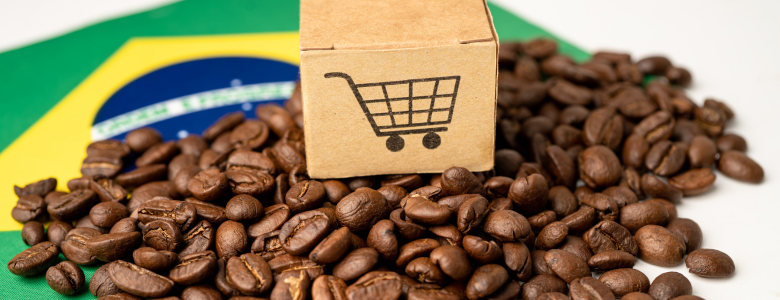
If you're after the perfect espresso base, look no further than Brazilian Santos. These beans come from the Santos region of Brazil, the world's largest coffee producer, and they're a favourite among roasters and baristas alike.
Brazilian Santos beans are typically medium roasted, bringing out their natural sweetness and nutty flavours. When pulled as an espresso coffee, you'll get a shot with a heavy body, low acidity, and notes of dark chocolate, toasted almonds, and a hint of cinnamon.
What makes Brazilian Santos so popular for espresso is its forgiving nature. It's less finicky than some other beans when it comes to extraction, making it easier to get a consistently good espresso shot. Plus, its flavour profile stands up beautifully in milk-based drinks, making it a go-to for flat whites and cappuccinos.
Pros:
- Excellent choice for espresso-based drinks.
- Forgiving when choosing coffee beans for espresso.
- Medium roast brings out the natural sweetness.
- Good for those new to home espresso brewing.
Cons:
- May lack complexity for pour-over enthusiasts.
- Not the best choice for those seeking bright, acidic coffees.
6. Sumatra Mandheling - Best Dark Roast Coffee Beans
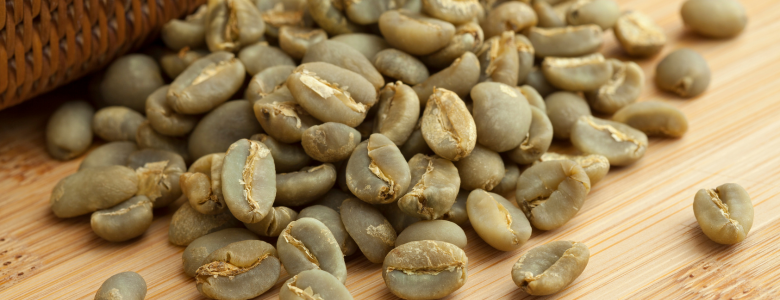
For those who love bold, intense coffee, Sumatra Mandheling is a top choice. These Arabica beans come from the western-central regions of Indonesia, where unique processing methods contribute to their distinctive flavour.
Sumatra Mandheling is typically given a dark roast, which brings out its full-bodied, syrupy texture and earthy flavours. You'll taste notes of dark chocolate, cedar, and a subtle spiciness, with very low acidity. The finish is long and complex, often described as having a tobacco-like quality.
This coffee's popularity among dark roast lovers comes from its ability to stand up to the roasting process without becoming bitter or losing its unique character. It's brilliant in a French press or as a base for cold brew, where its bold flavours can really shine through.
Pros:
- Excellent dark roast coffee beans.
- Full-bodied and intense flavour.
- Great for those who enjoy strong coffee.
- Ideal for French press or cold brew.
Cons:
- May be too intense for those who prefer medium roast.
- Low acidity might not appeal to all coffee drinkers.
7. Costa Rican Tarrazu - Best Bright Coffee
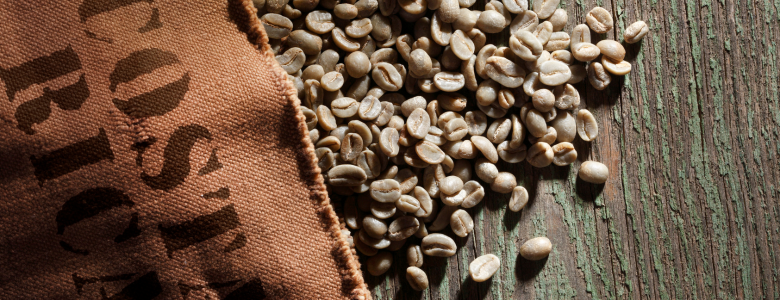
If you're after a coffee that'll wake up your taste buds, Costa Rican Tarrazu is your go-to. These beans come from the Tarrazu region, known as one of the best coffee-growing areas in Costa Rica.
Costa Rican Tarrazu coffee is typically medium-roasted to preserve its bright, lively character. When you brew it up, you'll notice a crisp acidity that dances on your tongue, balanced by a medium body. Flavour-wise, you're in for a treat - expect notes of citrus, apples, and sometimes even a hint of honey.
What makes this coffee stand out is its clean, vibrant taste. It's an excellent choice for pour-over or filter coffee, where its nuanced flavours can really shine. It's a favourite among coffee enthusiasts who appreciate a coffee with personality.
Pros:
- Bright, lively flavour profile.
- Medium roast preserves unique characteristics.
- Excellent for filter coffee methods.
- Good representation of Central American coffee beans.
Cons:
- High acidity may not suit all palates.
- Might not stand up well in milk-based drinks.
8. Panama Geisha - Best Specialty Coffee Beans
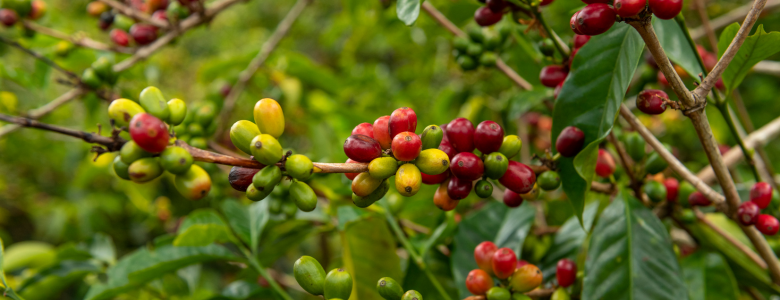
If you're looking for a truly exceptional coffee experience, Panama Geisha is the way to go. This rare and highly prized variety of Arabica coffee originates from Ethiopia but has found fame growing in the highlands of Panama.
Panama Geisha is known for its incredibly complex and delicate flavour profile. When brewed, it offers a tea-like body with floral aromas and a taste that can include notes of jasmine, bergamot, papaya, and honey. The acidity is bright but balanced, and the finish is long and clean.
What makes Panama Geisha so special is its exclusivity and the skill required to grow and process it. It consistently fetches high prices at auction and is sought after by specialty coffee shops and connoisseurs worldwide. It's best enjoyed as a light roast and brewed with care to appreciate its nuanced flavours fully.
Pros:
- Highly prized specialty coffee beans.
- Complex and delicate flavour profile.
- Excellent example of light roast coffee.
- Ideal for coffee connoisseurs.
Cons:
- Very expensive compared to other coffee beans.
- Delicate flavour may be lost in milk-based drinks.
9. Jamaican Blue Mountain - Most Exclusive Coffee Beans
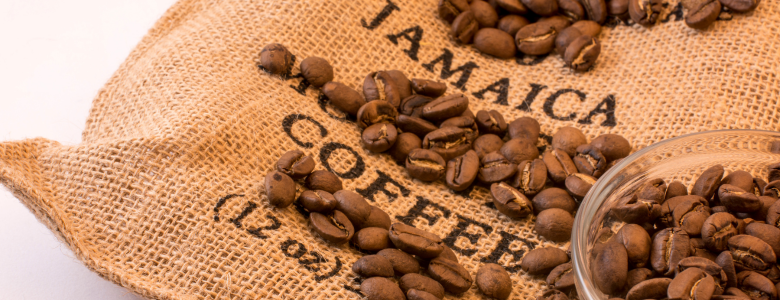
Now, if you're looking for a bit of luxury in your cup, Jamaican Blue Mountain is the way to go. These beans are grown in the Blue Mountains of Jamaica, a small region known for producing some of the world's most sought-after coffee.
Jamaican Blue Mountain is usually medium-roasted coffee beans that showcase its natural flavours. When you brew it up, you'll notice a clean, mild flavour with no bitterness. It's known for its smooth, creamy body and subtle, complex taste with notes of milk chocolate, nuts, and sometimes a hint of blueberry.
What makes this coffee so exclusive is its limited production and strict certification process. Only coffee grown in the specific Blue Mountain region can bear this name, making it rare and often quite pricey. It's a coffee to savour, perfect for those special occasions.
Pros:
- Exclusive and highly sought-after coffee beans.
- Smooth, clean flavour with no bitterness.
- Medium roast showcases natural flavours.
- Luxurious choice for special occasions.
Cons:
- Very expensive due to limited production.
- May not meet expectations given the high price.
10. Honduran Marcala - Best Value
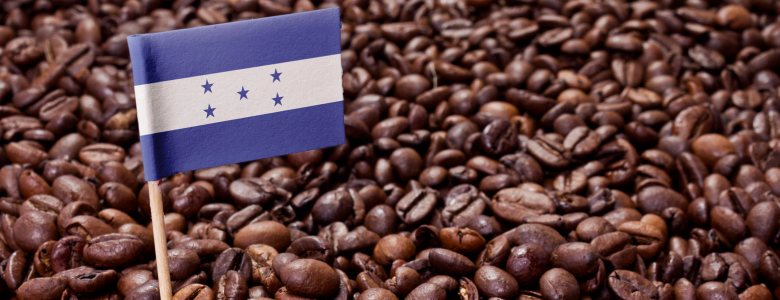
For those looking for a great cup of coffee without breaking the bank, Honduran Marcala is a fantastic choice. These beans come from the Marcala region of Honduras, an area known for producing high-quality coffee at reasonable prices.
Honduran Marcala typically offers a medium body with a well-balanced flavour profile. You'll find notes of milk chocolate, nuts, and caramel, with a subtle fruitiness and a smooth, clean finish. The acidity is moderate and pleasant, making it an easy-drinking coffee suitable for everyday consumption.
What makes Honduran Marcala such good value is that it delivers many of the qualities of more expensive Central American coffees at a lower price point. It's versatile enough to work well in various brewing methods, from drip coffee to espresso.
Pros:
- Great value when buying coffee beans online.
- Versatile for various brewing methods.
- Well-balanced, easy-drinking coffee.
- Good introduction to Central American coffees.
Cons:
- May lack the distinctiveness of more expensive coffees.
- Not ideal for those seeking very bold or unique flavours.
11. Papua New Guinea (PNG) Highlands - Best for Cold Brews
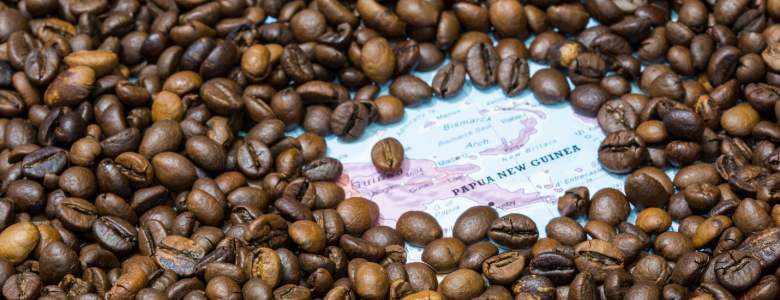
When it comes to making a cold brew, Papua New Guinea (PNG) Highlands coffee is a top choice. These beans are grown in the mountainous regions of PNG, where the high altitude and unique climate contribute to their distinctive character.
PNG Highlands coffee typically has a full body with low acidity, making it perfect for cold brew. When steeped for hours in cold water, it develops a smooth, almost syrupy texture with flavours of dark chocolate, tropical fruits, and sometimes a hint of tobacco. The result is a refreshing and complex cold brew that's brilliant on its own or with a splash of milk.
What makes PNG Highlands coffee so good for cold brew is its ability to maintain its character even when brewed at low temperatures. It's also less common than some other origins, offering cold brew enthusiasts a chance to try something a bit different.
Pros:
- Excellent for cold brew coffee.
- Full-bodied with low acidity.
- Unique flavour profile among coffee beans.
- Good for those exploring different origins.
Cons:
- May not be as readily available as other origins.
- Might not suit those who prefer bright, acidic coffees.
12. Mexican Chiapas (Decaf) - Best for Decaf
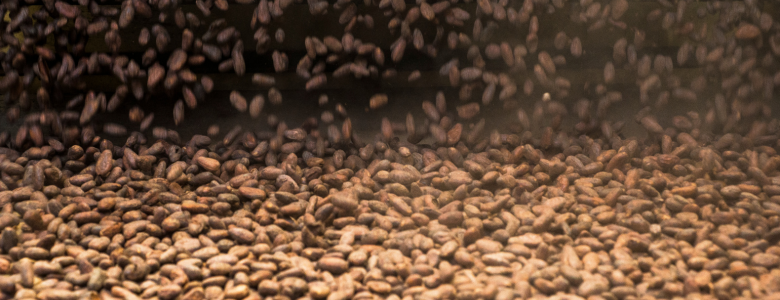
For those times when you want the taste of coffee without the caffeine hit, Mexican Chiapas decaf is a brilliant option. These beans come from the Chiapas region of southern Mexico and are carefully decaffeinated to preserve their natural flavours.
Mexican Chiapas decaf offers a medium body with a smooth, well-rounded flavour profile. You'll notice notes of chocolate and nuts, with a subtle sweetness and a hint of spice. The acidity is mild, making it a very easy-drinking coffee that's perfect for evening cuppas or for those who are sensitive to caffeine.
What makes Mexican Chiapas stand out in the decaf world is that it retains much of the character of its caffeinated counterpart. It's versatile enough to work well in various brewing methods, from drip coffee to espresso, making it a great all-rounder for decaf coffee drinkers.
Pros:
- Great option for decaf coffee beans.
- Retains much of its flavour after decaffeination.
- Versatile for various brewing methods.
- Good choice for evening coffee drinkers.
Cons:
- May lack the full flavour impact of caffeinated coffee.
- Limited options compared to regular coffee beans.
13. Tanzanian Peaberry - Most Unique Coffee Bean Shape
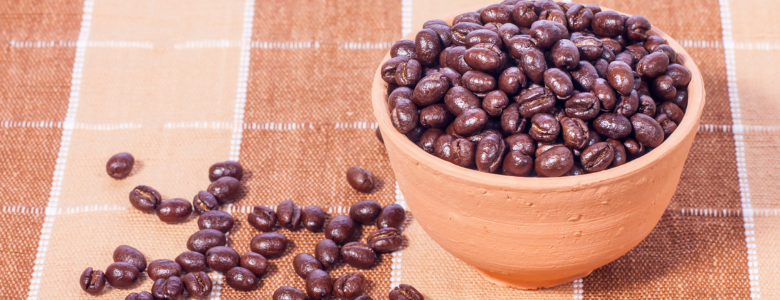
Here's a fun one for you - Tanzanian Peaberry. Peaberry is a natural mutation where the coffee cherry produces a single, round bean instead of the usual two flat-sided beans. This occurs in about 5-10% of coffee cherries, and many reckon it results in a more flavourful cup.
Tanzanian Peaberry coffee typically has a medium to full body with a bright acidity. When you brew it up, you'll notice a complex flavour profile with notes of black currant, citrus, and sometimes a wine-like quality. There's often a sweet, clean finish that'll leave you wanting more.
What makes this coffee special is not just its unique shape but also its concentrated flavour. Many coffee lovers swear that peaberry coffees have a more intense taste than their regular counterparts. It's a brilliant choice for those who want to explore the nuances of a single-origin coffee.
Pros:
- Unique shape among coffee beans.
- Often provides a more intense flavour.
- Good choice for single-origin enthusiasts.
- Interesting option when buying coffee beans online.
Cons:
- Can be more expensive than regular coffee beans.
- Limited availability compared to other varieties.
14. Peruvian Organic - Best Organic Coffee Beans
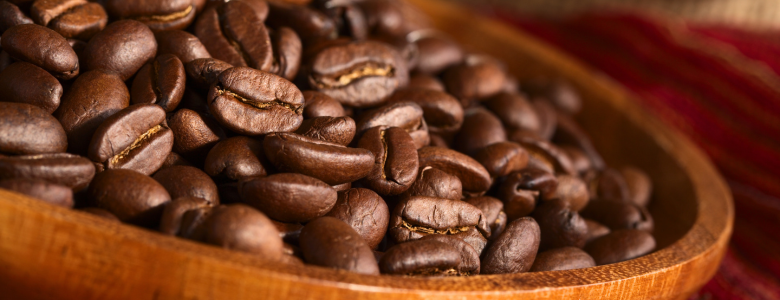
If you're after a top-notch organic coffee, Peruvian Organic is a great choice. These beans are grown in the high altitudes of the Andes Mountains, where farmers use traditional, chemical-free methods to produce some of the finest organic coffee beans in the world.
Peruvian Organic coffee typically offers a medium body with a smooth, gentle acidity. The flavour profile includes notes of nuts and chocolate, often with a subtle fruity sweetness reminiscent of dried fruit. Some varieties may also have floral or citrusy overtones, adding to their complexity.
What makes Peruvian Organic coffee so popular among eco-conscious coffee lovers is not just its organic certification but also its consistently high quality. Many Peruvian coffee farms are small, family-owned operations that take great pride in their sustainable farming practices.
Pros:
- Certified organic coffee beans.
- Medium body with smooth acidity.
- Supports sustainable farming practices.
- Good choice for environmentally conscious consumers.
Cons:
- May be more expensive than non-organic options.
- Flavour profile might be too subtle for some.
15. Colombian ASOAPIA Fair Trade Coffee - Best Sustainable/Fair Trade
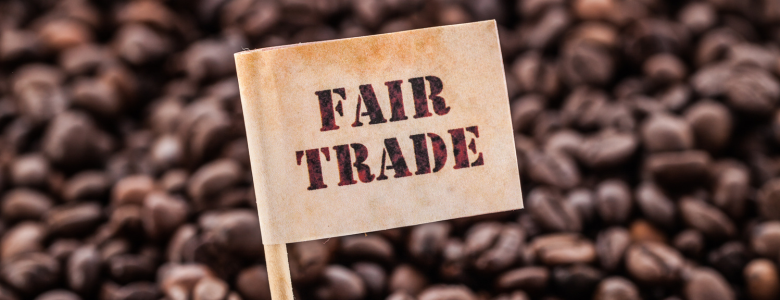
For those who want their daily brew to make a positive impact, Colombian ASOAPIA Fair Trade Coffee is a top pick. ASOAPIA stands for Asociación de Productores de Café del Occidente de Antioquia, a cooperative of small-scale coffee farmers in Colombia's Antioquia region.
This coffee typically offers a medium body with a bright, clean acidity. You'll taste notes of caramel and citrus, often with a subtle nuttiness and a smooth, balanced finish. It's a versatile coffee that works well in various brewing methods, from drip coffee to espresso.
What sets ASOAPIA coffee apart is its commitment to sustainability and fair trade practices. By choosing this coffee, you're supporting small farmers who receive fair prices for their beans and invest in sustainable farming methods. It's a feel-good choice that doesn't compromise on flavour.
Pros:
- Supports fair trade practices.
- Versatile for various brewing methods.
- Balanced flavour profile.
- Good choice for socially conscious consumers.
Cons:
- May be more expensive than non-fair trade options.
- Flavour might not stand out compared to other specialty coffees.
16. Indian Monsooned Malabar - Most Unique Process
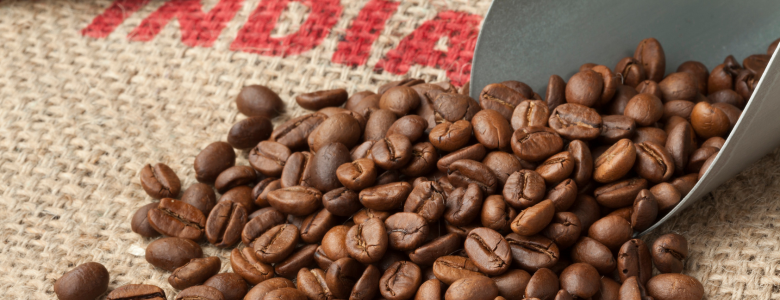
Now, here's a coffee with a story - Indian Monsooned Malabar. These beans go through a unique processing method that mimics the conditions of how coffee was transported from India to Europe in the 19th century.
The green coffee beans are exposed to monsoon winds for 3-4 months, causing them to swell and change colour. This process results in a coffee with very low acidity and a distinct, heavy body. When you brew it up, you'll notice a smooth, almost syrupy mouthfeel with flavours of spice, wood, and sometimes a subtle earthiness.
What makes this coffee stand out is its unique flavour profile, unlike any other coffee out there. It's a favourite among those who enjoy a full-bodied coffee without the acidity. It's particularly good for espresso blends, adding depth and complexity.
Pros:
- Unique processing method among coffee beans.
- Very low acidity with full body.
- Distinct flavour profile.
- Great for espresso blends.
Cons:
- Unusual flavour might not appeal to all coffee drinkers.
- Not ideal for those who prefer bright, acidic coffees.
17. Vietnamese Robusta - Strongest Caffeine Kick
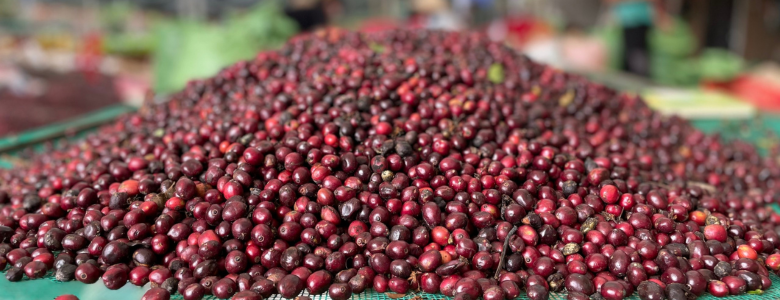
If you're after a real wake-up call, Vietnamese Robusta is your best mate. Vietnam is the world's largest producer of Robusta coffee beans, known for their strong, bold flavour and high caffeine content.
Vietnamese Robusta has a full body with a strong, somewhat bitter taste. When you brew it up, you'll notice earthy and sometimes woody notes with a hint of dark chocolate. It's got nearly twice the caffeine of Arabica beans, so it'll definitely put a spring in your step!
What makes this coffee popular is its strength and affordability. It's often used in espresso blends to add body and crema. While it might be too intense for some on its own, it's a key player in many commercial coffee blends.
Pros:
- Highest caffeine content among coffee beans.
- Strong, bold flavour.
- Affordable option for strong coffee.
- Often used in espresso blends.
Cons:
- Can be too bitter or intense for some palates.
- Not ideal for those who prefer subtle, complex flavours.
18. Ugandan Robusta - Best African Robusta
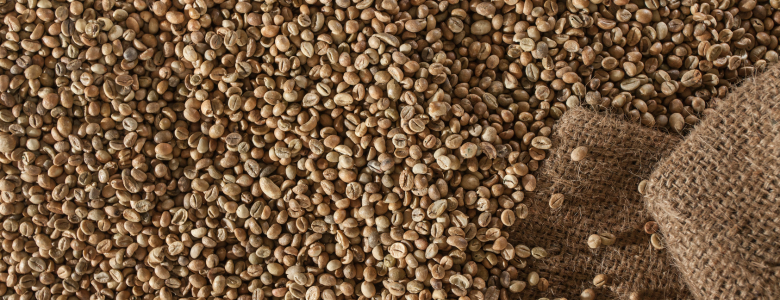
Let's head over to Africa for another Robusta variety - Ugandan Robusta. Uganda is one of the top Robusta producers in Africa, and their beans are known for being a cut above your average Robusta.
Ugandan Robusta has a full body and strong flavour, but it's often described as smoother and less bitter than other Robusta varieties. When you brew it up, you might notice hints of dark chocolate and sometimes a subtle sweetness that balances out the typical Robusta intensity.
What sets Ugandan Robusta apart is its quality. Uganda has been working hard to improve its coffee production, and it shows in the cup. It's a great option for those who want to explore Robusta coffee beyond just a caffeine hit.
Pros:
- Higher quality Robusta coffee beans.
- Smoother than typical Robusta.
- Good option for those exploring Robusta coffees.
- Often used in espresso blends.
Cons:
- Still may be too intense for Arabica lovers.
- Not ideal for those seeking subtle, complex flavours.
19. Brazilian Conilon - Best Robusta for Espresso Blends
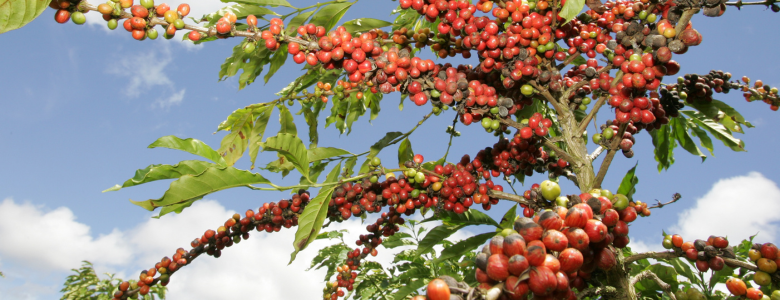
Now, let's talk about Brazilian Conilon, which is actually Brazil's name for its Robusta variety. Brazil is famous for its coffee, and while they produce loads of Arabica, their Conilon is nothing to sneeze at.
Brazilian Conilon has a strong, full body with a distinctive flavour profile. When you brew it up, you might notice earthy and woody notes, sometimes with a hint of bitterness that's characteristic of Robusta. It's got that high caffeine kick you expect from Robusta, making it a morning favourite for many.
What makes Brazilian Conilon popular, especially among roasters, is its role in espresso blends. It adds body, crema, and a caffeine boost to blends, balancing out the acidity of Arabica beans. It's a key player in creating that perfect espresso shot that forms the base of your flat white or long black.
Pros:
- Excellent for adding body to espresso blends.
- High caffeine content.
- Adds crema to espresso shots.
- Affordable option for strong coffee.
Cons:
- May be too bitter on its own for some palates.
- Not ideal for those who prefer 100% Arabica coffee.
20. Indonesian Robusta - Best Robusta Dark Roasted Coffee Beans
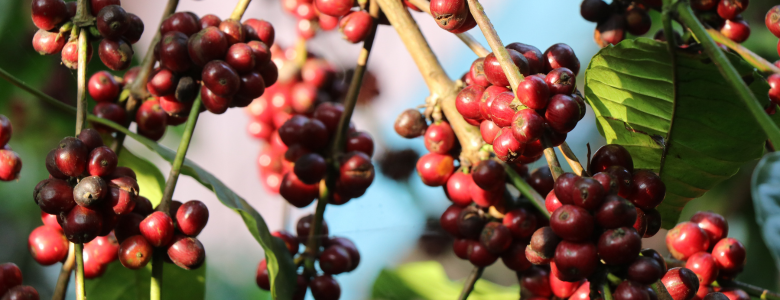
Last but not least, let's chat about Indonesian Robusta. Indonesia is one of the world's top coffee producers, and while their Arabica (like the Sumatra we talked about earlier) gets a lot of attention, their Robusta is worth a look too.
Indonesian Robusta is known for its full body and strong flavour. When you roast it dark and brew it up, you'll notice a bold, earthy taste with low acidity. Some describe hints of dark chocolate or even a slightly smoky note.
What makes Indonesian Robusta stand out is how well it handles a dark roast. The strong flavour of the beans can stand up to the intense roasting process without becoming overly bitter. This makes it a top choice for those who love a really strong, dark cup of coffee.
Pros:
- Handles dark roast well.
- Full-bodied with low acidity.
- Good for those who enjoy very strong coffee.
- Often used in espresso blends.
Cons:
- Can be too intense for those who prefer lighter roasts.
- Not suitable for those seeking bright, acidic coffee flavours.
Emerging Coffee Trends in 2025
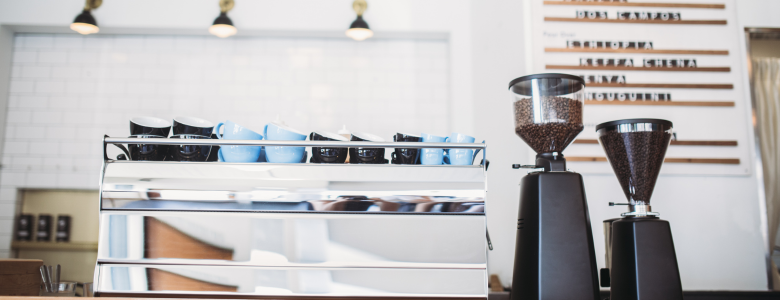
As we move through 2025, we're seeing several exciting trends shaping the coffee industry.
- Sustainability Focus: More than ever, coffee drinkers are seeking out beans that are not only delicious but also environmentally and socially responsible. Look for an increase in carbon-neutral roasters and packaging made from recycled materials.
- Experimental Processing: Innovative processing methods like anaerobic fermentation and carbonic maceration are gaining popularity, offering new and exciting flavour profiles.
- Cold Brew Innovations: The cold brew market continues to expand, with new flavours, nitro options, and ready-to-drink cans becoming increasingly popular.
- Speciality Robusta: While Arabica has long dominated the specialty coffee scene, we're seeing a growing appreciation for high-quality Robusta beans, particularly in espresso blends.
- Health-Conscious Options: Expect to see more functional coffees, including those infused with vitamins, adaptogens, or CBD.
- Direct Trade Relationships: More roasters are establishing direct relationships with farmers, ensuring fair prices and promoting transparency in the supply chain.
- Home Brewing Renaissance: With more people working from home, there's been a surge in interest in home brewing equipment and techniques.
- Origin Exploration: Coffee lovers are increasingly interested in trying beans from lesser-known origins, driving demand for coffee from countries like Myanmar, Laos, and Ecuador.
Storing and Maintaining Coffee Bean Quality
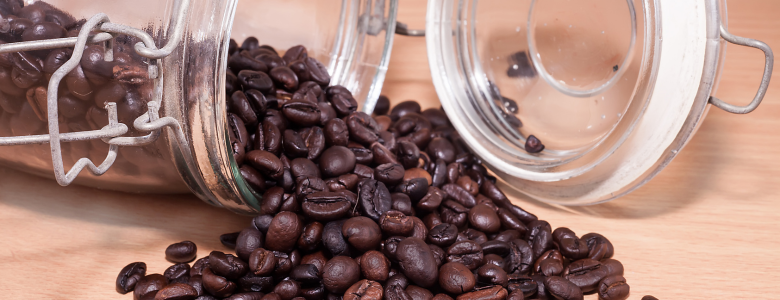
Proper storage is crucial to extend your coffee bean shelf life. Here are some tips to consider to get the most out of your beans:
- Keep it airtight: Store your beans in an airtight container to protect them from oxygen exposure.
- Avoid light and heat: Keep your beans in a cool, dark place. Avoid storing them near the oven or in direct sunlight.
- Buy whole beans: Whole beans retain their flavour longer than ground coffee. Invest in a good grinder and grind just before brewing.
- Buy fresh: Look for roast dates on coffee bags and try to use the beans within 2-4 weeks of roasting for optimal flavour.
- Avoid the fridge: Despite popular belief, storing coffee in the fridge can expose it to moisture and odours. Room temperature is best.
Taste Testing and Exploring Coffee
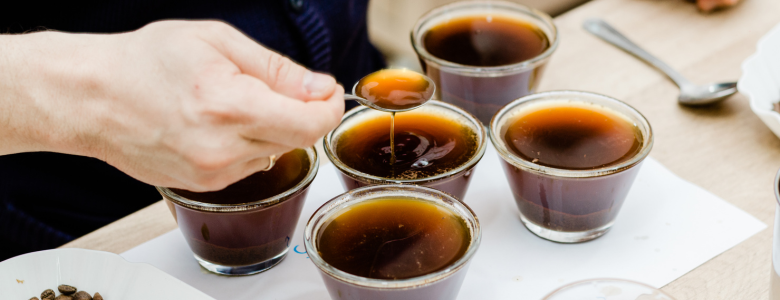
For the true coffee enthusiasts out there, why not try some taste testing? Gather a few different single-origin coffees or blends and compare their flavour profiles side by side. You might discover notes you've never noticed before, from the caramel sweetness of a medium-dark roast to the earthy depth of a robusta coffee.
Start with freshly ground coffee - the difference between pre-ground and freshly ground coffee is night and day. Pay attention to the aroma as you grind the beans, the crema on your espresso, or the bloom in your pour-over. These are all part of the coffee experience.
Don't be afraid to try new things. Maybe you'll fall in love with the bright acidity of a Kenyan coffee, or perhaps you'll discover a passion for the smooth, chocolatey notes in a Brazilian bean. The world of coffee is vast and varied, from exclusive coffees like Jamaica Blue Mountain to everyday favourites from your local coffee shop.
And let's not forget about the unique characteristics imparted by growing regions. Volcano coffee, grown in mineral-rich volcanic soil, often has a distinctive flavour profile that's worth exploring.
Summary
From the bright, complex flavours of Ethiopian Yirgacheffe to the bold, earthy notes of Indonesian Robusta, the world of coffee beans is diverse and exciting. Whether you're brewing up a flat white in your Melbourne cafe or enjoying a pour-over at home in Brisbane, choosing the right beans can elevate your coffee experience.
Remember, the best coffee beans are the ones giving you the cup of coffee you enjoy most. Don't be afraid to experiment with different beans, roasts, and brewing methods. You might surprise yourself and discover a new favourite!
From green coffee beans to the perfectly assembled coffee in your cup, every step of the journey contributes to the final flavour. So keep exploring, brewing, and most importantly, enjoying every sip of your coffee.
Frequently Asked Questions
Which coffee beans are the highest quality?
Generally, Arabica coffee beans are considered higher quality than Robusta due to their more complex flavour profiles. Among Arabica beans, those grown at high altitudes and processed carefully tend to be of the highest quality. Some of the most prized coffee beans include Panama Geisha, Jamaican Blue Mountain, and Hawaiian Kona.
Which are the best coffee beans in Australia?
Australia has a thriving coffee scene with many excellent local roasters. While "best" is subjective, some popular choices among Aussie coffee lovers include:
- Single-origin beans from Ethiopia or Colombia.
- Blends featuring beans from Papua New Guinea or Indonesia.
- Local Australian-grown beans from regions like the Atherton Tablelands in Queensland.
What are the top 5 coffees in the world?
The best coffee beans can vary based on personal preferences, but some widely recognised top coffees include Ethiopian Yirgacheffe, Panama Geisha, Sumatra Mandheling, Jamaican Blue Mountain, and Hawaiian Kona.
What coffee beans make the smoothest coffee?
For a smooth cup, look for beans with low acidity and a medium body. Brazilian Santos, Colombian Supremo, and Costa Rican Tarrazu are known for their smooth, balanced profiles. The roast level also affects smoothness – medium roasts often provide a good balance.
What is the best type of coffee bean?
There's no single "best" type as it depends on personal preference. However, Arabica beans are generally considered superior to Robusta due to their more complex flavour profiles. Within Arabica, popular varieties include Bourbon, Typica, and Geisha.
The best coffee beans for you will depend on your taste preferences and brewing method.
